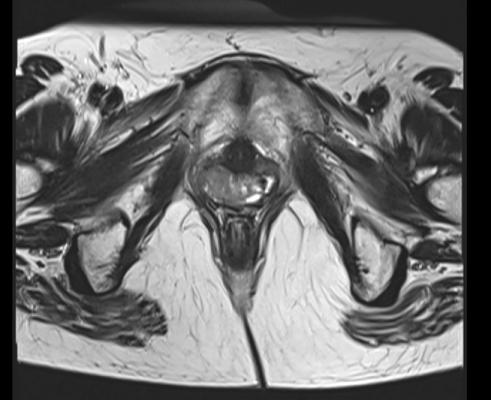
October 1, 2023 — People who engage in sexual activity or vaginal dilation after chemoradiation treatment for cervical cancer are at lower risk for long-term side effects, according to a new study from researchers in Austria. Findings of the EMBRACE study will be presented today at the American Society for Radiation Oncology (ASTRO) Annual Meeting.
“Curing cancer is always our first priority,” said lead study author Kathrin Kirchheiner, MSc, PhD, a clinical psychologist in the department of radiation oncology at the Medical University of Vienna. “But with a growing number of relatively young cervical cancer survivors, the prevention and management of side effects becomes increasingly important to ensure a better quality of life.”
“I hope this research helps to reduce the taboo around sexual health and makes it easier for clinicians to discuss these issues with their patients.”
Cervical cancer is the fourth most common cancer among women globally. Patients are diagnosed most often around age 50. Standard non-surgical treatment for patients whose cancer has spread to the surrounding tissue or organs involves a combination of radiation therapy, chemotherapy and brachytherapy – inserting radioactive implants directly into the tumor.
Advances in brachytherapy, such as the use of MRI imaging to pinpoint tumor size and location, along with the ability to deliver precise doses of radiation, have greatly improved tumor control and cure rates in recent years. The five-year survival rate for people with locally advanced cervical cancer is 74%.
Delivering high doses of radiation to tumors near the vagina, however, can lead to vaginal stenosis – a shortening or narrowing of the vagina – and long-term changes in vaginal tissue that can complicate gynecological examinations or cause pain during intercourse. Physicians often recommend regular and ongoing vaginal dilation to mitigate these side effects and prevent scar tissue from forming, but few studies have quantified its impact.
EMBRACE is a multi-institutional, prospective, observational study that measured physician-reported vaginal side effects and patient-reported outcomes among 1,416 people with locally advanced cervical cancer. In this sub-cohort of 882 patients, Dr. Kirchheiner and her colleagues compared side effects for people who were sexually active or used vaginal dilators on a regular basis in the years after treatment to those who did not follow this routine.
In the five years following treatment, patients were seen for a median of 11 follow-up visits with gynecological exams to assess vaginal side effects. They also filled out questionnaires on quality of life, sexual activity and vaginal dilation. Questionnaires were completed at baseline, every three months in the first year, every six months in the second and third years and annually thereafter. The median age of patients was 49 years old.
Regular vaginal dilation and/or sexual activity – defined as the patient reporting the practice during half or more of their follow-ups – was reported by 64% of patients and was significantly
associated with lower risk for moderate grade 2 or higher vaginal shortening and narrowing five years after treatment (p≤0.001).
Patients who reported both dilation and intercourse had the lowest risk of grade ≥2 vaginal stenosis (18%), followed by those who were sexually active but did not use vaginal dilators (23%) and those who used dilators but were not sexually active (28%). Patients who did not engage in regular dilation or intercourse were most likely to experience moderate stenosis (37%).
Analyses also showed that regular sexual activity and/or vaginal dilation was associated with an increased risk for other – but mild – vaginal symptoms, such as grade ≥1 dryness and bleeding.
This is not surprising, said Dr. Kirchheiner, as vaginal dryness is more likely to be noticed as a lack of lubrication in patients engaging in some form of penetrative activity, and that minor bleeding during or after dilation or intercourse can often be caused by irritation of the vaginal lining.
“Minor vaginal dryness and bleeding can be managed with lubricants, moisturizer and/or hormone replacement therapy,” she said. “The risk of having these minor side effects should not stop patients from dilating or having sexual intercourse, as these activities may help prevent a more serious, and irreversible, condition.”
Among people who reported regular sexual activity and/or vaginal dilation, 72% experienced grade ≥1 vaginal dryness, compared to 67% of those who reported none or infrequent dilation/intercourse (p=0.028). Grade ≥1 vaginal bleeding occurred in 61% of patients who reported frequent sexual activity and/or vaginal dilation, compared to 34% of those who did not (p≤0.001).
While the study’s findings point to a promising option for patients to maintain sexual health following cervical cancer treatment, Dr. Kirchheiner emphasized that this study was observational and therefore can only report correlations. Questions remain regarding the degree to which vaginal dilation and/or sexual intercourse effectively prevent shortening and narrowing, or if the development of vaginal symptoms interferes with the likelihood that patients are able to engage in these activities.
“In clinical reality, both causal pathways likely will contribute and interact in a vicious circle. However, as we cannot and should not randomize patients in a clinical trial into groups with and without regular dilation, our findings support both clinical experience and the standard of care.”
Next steps for this area of research, said Dr. Kirchheiner, include considering the role of sexual arousal, such as increased blood flow in the pelvic area, on tissue healing and vaginal health, given the slight advantage of intercourse over dilators in their observational study.
Yet studies on sexual health following cancer treatment can be difficult to complete, she noted. “Sexual health is a highly individual and sensitive topic to address, both in research and in survivorship care, and it deserves a respectful and comprehensive approach.”
For more information: www.astro.org
Find more ASTRO23 conference coverage here


 February 05, 2026
February 05, 2026 









